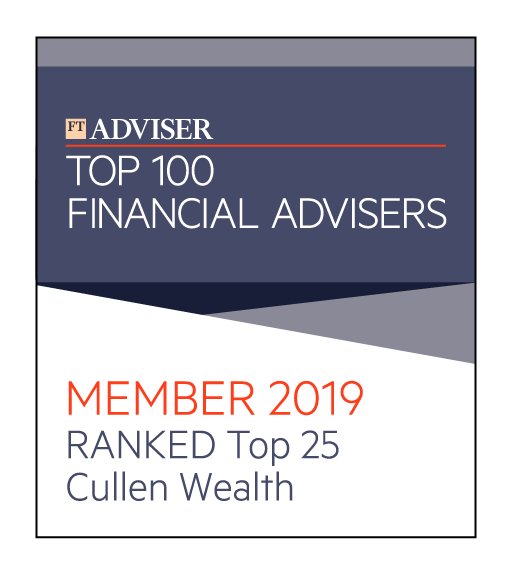Introduction
August used to be known as the ‘silly season’. Everyone who made the news was away on holiday, nothing happened and newspapers were desperate to fill their pages. So rather more obscure stories made it into print…
That, of course, was before Donald Trump. And Brexit. And Venezuela, Argentina and Greece. And…
In short, August is now just another month and this year it saw the world’s two most powerful economies, the USA and China, continuing their trade war as the US imposed an additional round of tariffs on Chinese imports and Beijing inevitably retaliated. Domestically, there were more woes for Donald Trump as more members of his former inner-circle decided they would rather do a deal with the prosecutors than the President. Could he be impeached? At this stage it would seem unlikely but the net is tightening.
At home, the Chancellor, as Chancellors do, floated the idea of a new tax. Abroad, two South American countries found themselves in deep trouble and Greece emerged from its bailout programme. For now, anyway…
UK
The month in the UK got off to a bad start for borrowers and, hopefully, a good start for savers as interest rates finally rose. The move, from a base rate of 0.5% to 0.75%, had been long expected, with the economy strengthening, consumer spending gradually rising and the Bank of England seeking to get inflation closer to its target rate of 2%.
He may be one of the least charismatic holders of his office, but Chancellor Philip Hammond was at the centre of one of the more interesting stories in August. The month started with news that Amazon’s UK profits had jumped from £24.3m to £72.3m. At this point the Chancellor must have been rubbing his hands in the expectation of some juicy tax receipts but no, Amazon’s tax bill came in at just £4.6m and it was able to defer £2.9m of that, meaning that the Chancellor could expect a cheque for just £1.7m.
As we will report below, August was a month which saw the familiar tale of gloom for UK retail and the Chancellor has often spoken of ‘levelling the playing field’ between online retailers and the traditional high street.
So August saw him float the idea of an ‘Amazon Tax’, a specific tax on online sales platforms to help traditional retailers. “We want to ensure the high street remains resilient,” he said, “And make sure taxation is fair between businesses doing business the traditional way and those doing business online”.
Will it work? It seems doubtful. Rewind the clock to the beginning of the last century and Hammond would have slapped a special tax on cars to protect the horse and buggy economy. But France and Germany have already introduced their own version of the tax: do not be surprised to see it included when ‘Spreadsheet Phil’ delivers his Autumn Budget speech.
As we mentioned above, August was another poor month for the retail sector in the UK. House of Fraser went into administration and was bought by Sports Direct for £90m, around a tenth of the previous valuation. Marks and Spencer’s mooted more store closures and the month ended with the future of Homebase looking uncertain as 42 stores were closed. However, Coca Cola did give the high street, and the coffee business, a double espresso vote of confidence by agreeing to buy the Costa Coffee chain for £3.9bn.
The sun continued to shine in August and the Office for National Statistics reported the good weather had helped boost the UK’s Gross Domestic Product by 0.4% in the second quarter of the year. There was gloom for the housing market though, with August seeing house prices suffer their biggest month-on-month fall since July 2012. UK car manufacturing was also down in July and profitability in the service sector was at its lowest level for four years. But for those who like their glass half full there was yet another drop in unemployment, as it came down by 63,000 to 1.36m, the lowest level since 1975. The UK also recorded its biggest July surplus of income over expenditure for 18 years, so finally the Chancellor could get excited…
Sadly, the FTSE index of leading shares took its cue from the bad news rather than the good, finishing the month down 4% at 7,432. The pound was also down slightly against the dollar, closing down 1% at $1.3016.
Brexit
There were, inevitably, any number of stories about Brexit during August, the vast majority of them centring on the consequences of a ‘no deal’ Brexit, a fantastic opportunity for the UK or a potential disaster depending on your existing viewpoint. What did gradually emerge through the month was the realisation that ‘no deal’ holds as many terrors for the EU as it does for the UK. Perhaps the most relevant story came on the last day of the month, with City AM suggesting that leaders of the EU27 were preparing a ‘fudge’ agreement, allowing both sides to claim victory.
That would be entirely in line with the way the negotiations have preceded so far, and there is still plenty of scope for a last minute decision to extend the UK’s two year notice period beyond 29th March next year. There is a French saying which roughly translates as ‘only the temporary endures’. You would not bet against reading our monthly market commentary in August 2028 and seeing a comment on the UK’s ‘temporary agreement’ with the EU…
There have also been attacks on the Prime Minister’s Chequers proposals both from within her own party and from the EU’s chief negotiator, Michel Barnier. The Conservative Party Conference takes place at the end of this month, but the PM’s speech will not be until 3rd October. So it looks like we are in for another month of uncertainty. Keeping with French phrases, ‘Plus ça change…’
Europe
In Europe, the Greek bailout finally ended. On the surface this is good news: Greece is no longer borrowing from the EU, and the government is finally running a surplus. Dig a little deeper though and it is much less cheery, Greece has been left with severe debts which will take generations to repay. A fifth of the population, and a quarter of Greek children, live in severe material deprivation. The unemployment rate remains around 20% with youth unemployment twice that: half a million Greeks have left the country and the financial crisis has wiped out a fifth of the economy. As the old saying goes, only death and taxes are certain, but we can be fairly sure that sooner or later the headlines will be saying ‘Greek Crisis’ again.
Italy, one of the other teetering European economies, set itself on collision course with the EU by announcing a massive €80bn investment in the nation’s infrastructure. The populist government seized on the collapse of the Genoa bridge to announce the plan, hoping that the financial stimulus can boost Italy’s flagging economy. It is a high risk gamble, but Italy’s economy has been virtually stagnant for two decades: the only surprise is that it has taken this long…
Like so many other leading indices, both the major European stock markets were down in August, with the German DAX index dropping 3% to 12,364 and the French stock market falling back by 2% 5,407. At the other end of the stability league table the Greek stock market was down 4% at 730.
US
Let us start off the US section with a success story. At the beginning of the month Apple won the race to become the first trillion dollar company. Better than expected figures, confirming strong sales growth for the more expensive iPhone models, sent the shares to a new high of $207, enough to see Apple beat Microsoft, Amazon and Alphabet (the parent company of Google) to the trillion dollar valuation.
There was, though, some gloomy news for the wider economy at the start of the month as US jobs growth slowed in July. Just 157,000 new jobs were created in the month, 33,000 below expectations and well down on the 248,000 created in June. Figures also confirmed that the US service sector had expanded at its slowest rate for 11 months.
As the month progressed, the President continued his high-profile initiatives and interventions, doubling the tariffs on Turkish steel and aluminium, and sending the Turkish lira plummeting as a result, and doing what he described as an ‘incredible’ trade deal with Mexico and threatening to pull the US out of the World Trade Organisation.
Whatever you think of the President’s actions, by the end of the month the US was awash with good economic news, as figures released for the second quarter showed the US economy had grown at an annualised rate of 4.2%.
Not surprisingly Wall Street liked what it saw, and the Dow Jones index ended August up 2% at 25,965.
Far East
We have covered the China/US trade war above and there was little good news to report for China in August as the stock market fell and there were worrying signs for the Hong Kong property market as monetary tightening by the US federal Reserve forced Hong Kong’s authorities to restrict credit.
There was better news on the other side of the Sea of Japan, with figures for the second quarter showing the Japanese economy returning to growth, as it increased at an annualised rate of 1.9%. Car giant Toyota added to the good news as it posted a 7.2% rise in quarterly net profits, beating expectations and surprising analysts.
On the region’s stock markets, China’s Shanghai Composite index was down 5% on the continuing worries about a trade war with the US, ending the month at 2,725. Hong Kong did only marginally better, falling 2% to 27,889. The other major Far Eastern markets were both up by 1% with the Japanese market closing the month at 22,856 and the South Korean index ending August at 2,323.
Emerging Markets
August was a busy month for the Emerging Markets section of the commentary, beginning with two tales of woe from South America.
Venezuela is in crisis: the country with the highest oil reserves in the world has been brought to its knees by the current government and is now seeing the largest exodus of people in South American history. Meanwhile, Argentina has once again had to go to the International Monetary Fund with the begging bowl and, as we write, interest rates have increased to an eye-watering 60% as the Government attempts to prop up the peso.
India was hit by the floods in Kerala, but the country has seen its fastest quarterly growth in two years as the rupee falls, with the country’s GDP expanding by 8.2% in the second quarter of the year, compared to 7.7% in the first quarter and 5.5% in the same period last year. Unsurprisingly, the stock market was up by 3% in August to close the month at 38,645.
The Russian currency was also hit as the US imposed sanctions in the wake of the Skripal affair, but the stock market still managed a 1% rise to 2,346. No such joy for the other major emerging market we cover, as the Brazilian index declined 3% in August to 76,678.
And finally
Or ‘rather more obscure stories’ as we should perhaps call them this month.
We’ll start ‘and finally’ in the dangerous waters of dating, where a divorcee looking for a wealthy boyfriend won £13,100 in damages from a dating agency after it failed to introduce her to the man of her dreams. Tereza Burki had paid the Seven Thirty agency, based in Knightsbridge, £12,600 but sued for ‘deceit and misrepresentation’. The judge ruled that the dating agency had ‘made promises but failed to produce the goods’.
Not so much ‘plenty of fish in the sea’ as not enough. Poor old Ms Burki spent £12,600 to catch a mackerel but obviously only dated sprats…
Also not having much luck are the UK’s farmers, who are increasingly the victim of rural crime, with villains reportedly enjoying a day out in the countryside and then finishing it by going home on a farmer’s quad bike. Rural crime is now a £44.5m a year problem and while some farmers are fighting back with CCTV and infra-red motion sensors, others are apparently using medieval fortifications, with earth banks, ditches and moats making a comeback.
Farmers, of course, have plenty of land, but the land everyone wants today is in cyberspace, with the BBC reporting that people are spending real money to buy virtual land in a new city called Decentraland. When we say ‘real money’ we obviously mean a virtual currency, Ethereum in this case, but we assume the virtual currency has to be bought with ‘real money’. So you invest money that only exists online buying land in a city that also only exists online. Sometimes, the world seems it’s just getting too complicated…





